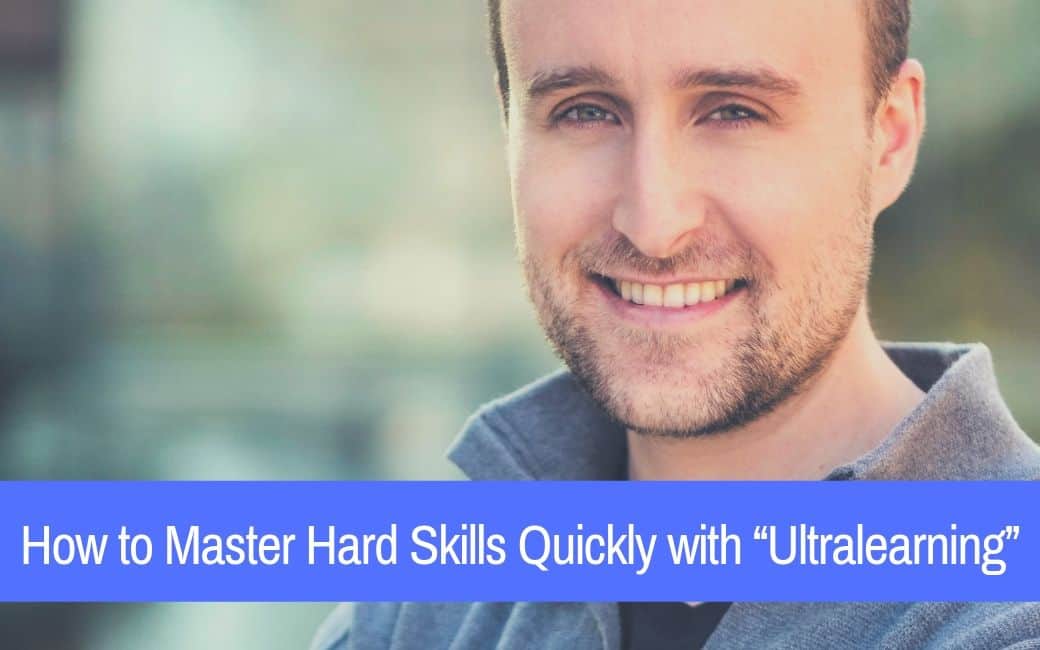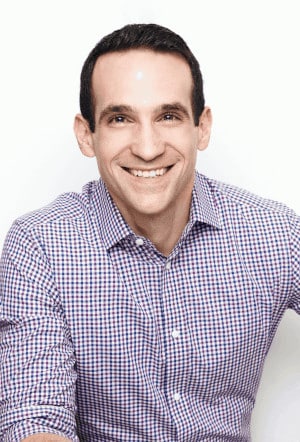Scott Young is an “ultralearner.” He’s known for learning M.I.T.’s grueling 4-year computer science curriculum in just twelve months. He speaks six languages. In fact, he’s presented his lecturers to audiences in Chinese.
It’s fitting that Scott is also the author of the recently published Wall Street Journal bestseller, Ultralearning: Master Hard Skills, Outsmart the Competition and Accelerate Your Career. The book digs into the science and strategies behind amazing feats of mastery and learning. Ultralearning argues why being able to quickly master hard things is an essential skill and shows you exactly how to do it.
I met with Scott to discuss his book, as well as the role habits and distractions, play in supporting or impeding our learning.
SY: Quite a few things! First, that the actual academic research on feedback shows it can often backfire. Getting the right kind of feedback, and knowing what to pay attention to and what to ignore is critical.
Second, that people are lousy at transferring what they learn from books and classes to real situations. Study after study shows that you can spend months (or years) teaching someone a skill and then they fail to apply it in the real world. This is particularly dangerous because if you go back to get an MBA, attend a pricey conference or read a ton of business books—you don’t want that money and effort to go to waste.
Finally, that we’re often wrong about what matters for learning well. Studies on retrieval show that recall beats passive review by a mile, but when given the chance to choose how to study, people often don’t pick it. We think we understand things we really don’t. We think we’ll remember something but then forget it almost immediately. Without knowing this research, I think a lot of people would be surprised at how often their intuitions about learning lead them astray.
SY: The biggest lesson is the idea of directness. This is that you ought to ask yourself, before learning anything, “in what kinds of situations will I need to use this knowledge?” and then try to create practice activities that are the same or mirror the thing you’re trying to get good at. Too much learning is indirect and fails to transfer to the real world.
The second lesson is that it’s really possible to teach yourself hard things, with the right approach. Choosing the right method to learn something can make all the difference between success and failure, and yet we usually attribute this to raw talent.
SY: Wake up and start writing first thing. I went to a coffee shop nearby to get writing. Like you talk about in your book, I found the problem wasn’t literal distractions but my own inability to push through the difficult aspects of writing. Being in an environment where I can’t legitimately claim to be working on something else made that easier for me.
Related Articles
- Schedule Maker: a Google Sheet to Plan Your Week
- Habit Tracker in Google Sheets – Free Template
- A List of 20 Values [and Why People Can’t Agree On More]
- Timeboxing: Why It Works and How to Get Started in 2024
- An Illustrated Guide to the 4 Types of Liars
- Hyperbolic Discounting: Why You Make Terrible Life Choices
- Happiness Hack: This One Ritual Made Me Much Happier

